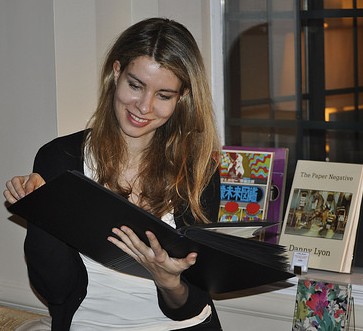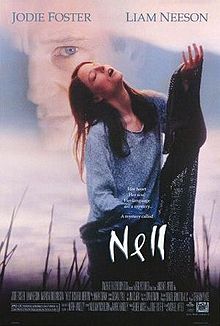How Best-Selling Writers Sabotage Themselves (and How to Learn from Their Mistakes)
You encounter an author, and it’s love at first page. You declare your devotion over Facebook and write giddy reviews on Goodreads.
When the author publishes new work, you fall on it like a jackal. But then, the inevitable happens. You read their book—maybe it’s their second; maybe it’s their seventh—and you’re deeply disappointed.
You visit Amazon and find out you’ve got plenty of company. Most everyone, except for the author’s diehard fans, feels let down. Yet, when the author comes out with another book, you still rush to the store, hoping the magic will return. Sometimes it does; many times it does not.
Why Some Writers Seem to Get Worse Rather Than Better
There are many reasons writers go from magnificent to mundane: pressures from publishers to pen a book a year, failure to deepen their knowledge of craft and, of course, author burnout. But it’s also possible that these seasoned writers may have lost something crucial to their writing success: beginner’s mind.
A person with beginner’s mind is curious and playful and daring. Beginners plunge into a task, blissfully ignorant of all the blunders they might possibly make.
Beginners have yet to develop that inner voice that wields a whip and snarls, “Adverbs are evil,” or “Don’t you dare open your novel with a dream.” Their minds are free of the anxiety of failure. After all, who cares if you screw up, when you’re an amateur?
I experienced my own version of beginner’s mind when I wrote my first novel. I had no idea what I was doing, but I was a voracious reader and somehow, not only did I finish writing a novel, I ended up getting a three-book deal with a Big Five publisher.
Later I found myself seizing up when I sat down to work. Why? Because suddenly writing wasn’t a low-stakes exercise anymore. People were counting on me, and I dragged all those expectations and concerns into my writing room.
Now I have a sign over my desk that says “Be a Beginner Again,” and I try to remember the following three steps:
- Step One: Surrender to the Innate Intelligence of What You’re Writing
In Elizabeth Gilbert’s Ted Talk she tells the story of a poet who sees poems rolling toward her across the prairie, and she tries to catch them. Stephen King describes the experience of digging up a story. Occasionally it does feel as if a constant stream of stories, poems, and articles are floating in the air or growing in the ground, and our job as writers is to seize them and put them on the page.
Sometimes, though, too much knowledge gets in the way of the transmission. A story will beg to be written in the second person, and the writer’s inner critic will jump in and say, “Second person is gimmicky.”
What should we do when our inner critic starts acting up? Don’t ignore it; likely that will make it even more obnoxious (what we resist tends to persist). Instead, gently acknowledge it, but refuse to get caught up its crazy making.
- Step Two: Be Wary of the Pitfalls of Success
There are few things as thrilling as experiencing a writing win, whether it be your first published article or making the New York Times best-seller list. Unfortunately, success can undermine beginner’s mind. Suddenly you think everything you produce is golden. But as soon as you sit down to write, you can’t type a word.
Hence the so-called sophomore slump.
It happened to author Janet Fitch. After the runaway success of White Oleander, she thought her follow-up novel had to be sweeping and ambitious and spent three years writing it. Ultimately every word was scrapped. In a Los Angeles Times article, Fitch says, “When you have success, people think you know what you’re doing, and you start to agree with them . . . But you go from grandiosity to panic.”
After a big success, it’s even more important to come back to the keyboard with a playful spirit. Maybe your work will win a Pulitzer, or maybe it will never leave your PC. Don’t drag any into expectations in your writing sessions. Just be in the moment, and savor the task of creating something from nothing.
- Step Three: Practice Humility
You can avoid much of the downsides of success if you replace hubris with humility. When your writing is continually praised, it’s easy to get a big head. But the bigger the head, the more hot air it contains, and the worse the writing becomes.
I’ve never made the New York Times best-seller list or sat on Oprah’s couch, but I’ve had my share of modest successes, and when they happen, I try to remember that, in so many instances when I’ve written something fresh and distinctive, I have no idea how I pulled it off.
It’s like that poet catching poems; great writing washes over me like a summer squall. I continually prepare myself for those occasional flashes of brilliance by sitting at my desk for hours and by continually perfecting my craft. But, on some level, I know that my best writing doesn’t come from me but through me.
When you think of yourself as a conduit instead of a creator, it’s much easier to detach yourself from the success (or failure) of your last piece of work.
Best of all, you begin to believe that there’s an unlimited amount of ideas buzzing about, and you rarely worry that the well will run dry.
 Karin Gillespie is national best-selling author of five novels. Her nonfiction writing had been featured in the New York Times, The Writer Magazine,and Romantic Times. She maintains a writing blog here, and welcomes all to follow her on Twitter here. You can read about her and her books on her Amazon Author Page here.
Karin Gillespie is national best-selling author of five novels. Her nonfiction writing had been featured in the New York Times, The Writer Magazine,and Romantic Times. She maintains a writing blog here, and welcomes all to follow her on Twitter here. You can read about her and her books on her Amazon Author Page here.
Feature Photo Credit: Sybren A. Stüvel via Compfight cc












Perhaps one way to avoid these pitfalls would be to refuse to do serials, or to start each book with a different setting or cast of characters, maybe even a different genre.
Does anyone do that?
Food for thought, Curtis. I’ve always wanted to try a serial. I’ve heard of some authors doing it. It seems to me Stephen King did a serial once.
GREAT advice. I’m pinning this post as inspiration.
Thanks so much, Sandra. I’m glad you found it helpful.
“Replacing hubris with humility” not a bad concept, particularly as we writers live in worlds of our own creation. I am on the cusp of having a literary thriller set in Japan, which I have worked on for nearly a decade, shopped out to pubs. What is truly daunting about this prospect is that all this unpaid work basically just gets my foot in the door to a life of intensified scrutiny and pressure.
That said, it is hard to complain. So many are vying to have their voices heard. The question is, can I tune out any praise, should it come my way, and write an excellent second, third, and seventh novel? No idea there.
Writing is an art. Hence its origin is creativity. Perhaps when commercialism, not creativity is the dominant voice being heard, the voice of creativity is muffled or silence. The result– homeless words on a page.
Enjoy your writing. Write what you love to read. Learn more every day. Be confident in your craft.
This line jumped out at me. ‘My best writing doesn’t come from me but through me.’
I always feel this. Whenever I ‘try’ to write, it never happens. If I am ‘in the flow’, the novel writes itself. Always the truth for me. This is how the best writing happens.Thanks.
“When you think of yourself as a conduit instead of a creator”. Loved this line. Has proven so true in many instances in my life. Great blog. Wonderful wisdom. Thank you for sharing it. Blessings.
Thanks, Sherry and Susan for your kind comments.
Really interesting post, Karen because as I began reading I could think of some authors that fit this category. I also know an author who’s doing VERY WELL, but her publisher has her writing the same book over and over. She’s making a lot of money, but I can tell she’s unhappy. These were great tips. Thanks.
I’ve been told that a lot of writers these days are having a lot of success with a series of books. Once you hook a reader with the first instalment, they are hungry for the next one. I don’t think we should discount this idea for fear of not being able to produce good work for books 2, 3 and so on. We would have to plan out the series as if it was one novel being split into more than one book.
I’ve also heard that we should be looking to keep to the one genre, at least until we make a name for ourselves. To brand ourselves. The readers that love book number one, who are looking for our next book, will be expecting something like the one they loved – even if it’s not a series. I think they definitely would be disappointed if we switched genres on them.
Does anyone agree with this?
Writers should practice variety. There’s nothing wrong with having a second or third installment, or reusing a theme or genre, but once in a while, the wheels should be turned for the sake of the writer’s creative ability and to offer something new to fans.
I’m one of those authors that made the choice to have a rich and diverse writing life and experience. I love to write in various genres and did not want to box myself in with choosing only one genre in order to brand myself as only a mystery novelist. That made it hard for me to get contracts, but all my books sell to varying degrees and I will never regret writing the stories on my heart.
You can use a pen name for each genre. I notice some romance novelists even have different pen names for each romance subgenre they write in. I am now using a pen name for my Western romance, although I don’t hide that fact. So it’s really up to you. I feel life is too short to deny myself the experience and joy of experimenting with stories and writing the books I want to write. I don’t write to please someone else; I write what I think would be a terrific book. And I have been criticized for doing this, but I don’t care. I love all my novels and am glad I’ve written them.
As far as series goes, yes, it is a great idea to do a series, and usually as you put new books out, you gain new followers who buy the previous books. But I would never created a series with the structure of taking one novel and splitting it into multiple books. Each book needs to be complete and stand alone, although you can set up plot elements such that they will continue over multiple books in the series.
That’s got to be stifling for a writer, Marcy. I have a series and after three I was done. Bored writer, bored reader. You know, Susan, I think that was very true at one time, i.e. branding but I’m seeing a lot more flexibility these days. Lauren Oliver comes to mind. I one of those renegade writers that hates to court the marketplace though. I like to write what I’m passionate about.
Terrific post, Susan. I have never experienced the writing success to which you referred, but I have in my former career in the gasoline business. That success did to me precisely what you have outlined in your post. I thought I had the Midas Touch. It didn’t matter what business I entered or started, it was only a matter of time before it would be a roaring success.
How wrong I was. Each new business venture, outside of the business I knew, turned out to be nothing more that a monument to my ego, or stupidity, or both. Fortunately, I was able to escape from those flights of fancy and re-focus on the goose that laid the golden egg. The process wasn’t easy, but was greatly facilitated by… “Be a beginner again.”
I shall treasure those four words.
Wonderful insights, Karin.
I think part of the problem is that bestselling authors try to reproduce their success. But every book is different, and the author is different too.
You’ve captured the spirit of my favorite quote, by Carl Jung: “The creation of something new is not accomplished by the intellect, but by play.”
If you’re not having fun, that needs to be your first priority. If it’s fun for the author, it will be entertaining for readers.
“I’ve been told that a lot of writers these days are having a lot of success with a series of books.”
I am noticing some writers keeping the series concept fresh by transforming minor characters from one book into major characters in the next (Tana French). Or creating cosmos of interrelated characters, stories, spanning centuries, generations (David Mitchell).
Definitely pondering this approach with my first book Arisugawa Park, a literary mystery-thriller set in Japan, which has received (surprisingly positive) agent interest. One of the characters in this book turns out to have had problem gambling as motivating force. I have a nonfiction book on high stakes poker in the works. Then I plan to create a mystery-thriller tentatively titled “A Very Dark Game” that will span high stakes poker in Vegas and Macau and situate this character from Ari Park in Macau. A complex web of fiction/non-fiction . Hope it works..
Great article with much to think about. I especially love this line: “But, on some level, I know that my best writing doesn’t come from me but through me.”
Lovely article. To summarize, “dabble in buddhism.” I kid, but I do really agree with your points.
Sandra, I love that Jung quote and I so agree. Damon, I like those ideas about keeping a series fresh and I’m such a Tara French fan.
It’s true, M.W. 🙂 Buddhism informs so much of my writing. (Meditation has held me so much.) Glad the article resonated with you, Carla and Stephen. And sorry, Angela. I don’t why I called you Sandra.
Thank you for this wonderful article. It’s so clear – and all about mindset.
I believe that having a good mindset habit – shifting the mind into a productive, creative and open state and out of pressure and expectations – is fundamental to being a productive writer.
Will share this.
– Frauke
Thank you, Frauke. That’s very kind of you.
Hi Karin,
This was such a timely article for me! I am in the exact position you have described, having written one book and struggling to start the second. Well, almost the same position: I have yet to get that elusive first book deal! It was cathartic to read this and know that I am not alone in what I am experiencing, that I just need to put my head down and get on with it and get that first draft done. You have given me the fortitude that I need to push ahead no matter the outcome of that first novel. Thank you ever so much.
I’m so glad to hear the piece helped, Karen. Good luck with the 2nd novel.
Another insightful Gillespie post! Really—I love your no BS approach to life and writing.
CONDUIT: the word I need to paint on my office wall!
PW didn’t hesitate to let me know each novel after my first was a slump of a slump…they didn’t even review my last one!
You’re so right about beginner’s brain—writing for a different market now, and I’m finding my way back.
PW has a reputation of being harsh instead of helping readers find great books. Not a whole lot of great books get glowing reviews from them, so I don’t take their reviews all that seriously.
It’s funny. Sometimes I’d get a rave from PW and a diss from Kirkus or visa versa on the same book. It’s all so subjective.
Christa, so nice to see you here, and I’m glad the article resonated with you. Can’t wait to hear what you’re writing about next!
Love this advice. It’s the key to keeping your art fresh and yourself excited about keeping on with it. Rules at nice, but art is first felt and experienced. Over-analysis shuts it down.
Thanks, Eduardo. I can’t tell you how long it took me to learn this!
Karin, this is just to let you know that the link to your blog (“blog here”) next to your picture is broken.
Thank you for the very meaningful article.
Hi Jonathan, I just clicked on the link and it does work and open on her website.
commonsense and beautifully written article. With thanks.
What a great post! So insightful and full of useful real writer information! Just FYI, the link to your “blog here” post isn’t working.
This article pointed out so many of the pitfalls of success we never consider as struggling writers. I want to keep this to remember that every piece is a new opportunity, a new experience to explore. No writer is perfect and I am probably going to fall on my face, get something wrong and be vilified by somebody. I’ll get over it. I am neither perfect nor awful. I am a writer who tries to produce a good story, the kind I would want to read. I love the idea of starting each piece as a beginner. I want to always have that sense of wonder and worry as I sit down to write. I don’t ever want to be dull or predictable. It’s not who I am.